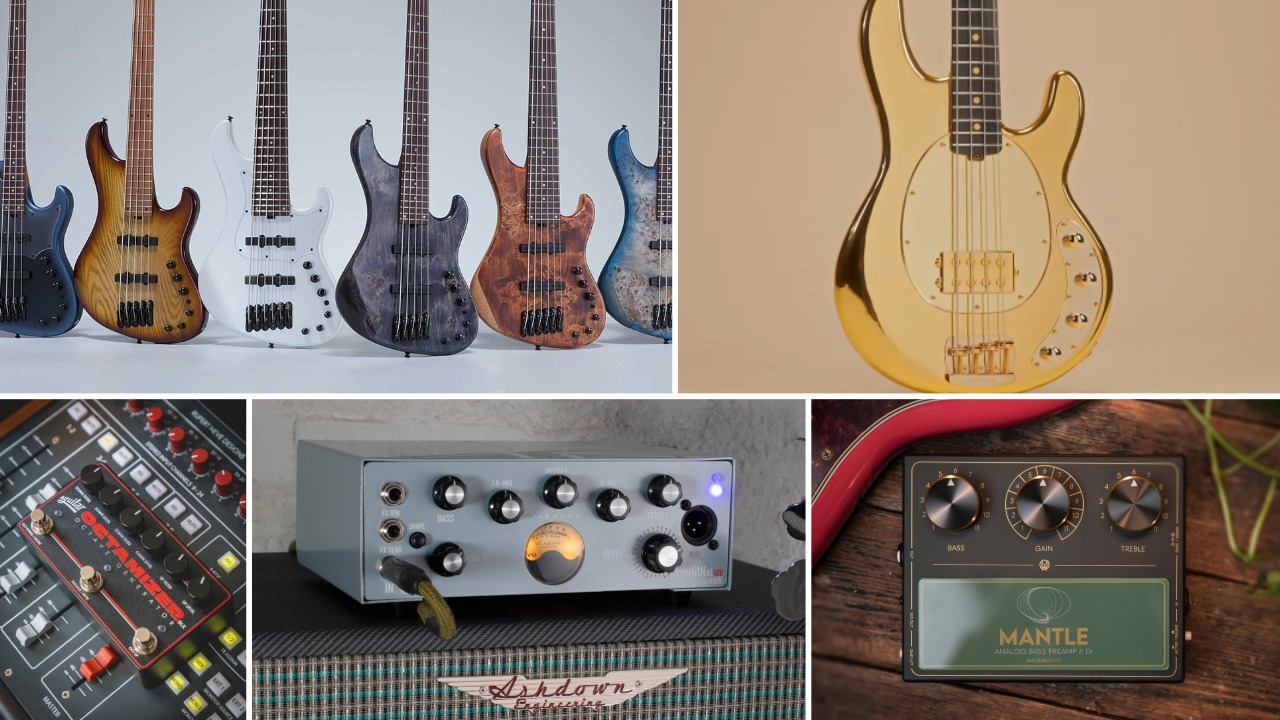“My friend called me: ‘You won’t believe this, and it’s probably not gonna happen, but I gave Billy Corgan your number. He might call you, he might not…’” Ginger Pooley reflects on her time with the Smashing Pumpkins – and why she had to give it up
Before she returns to action with Garbage, Ginger Pooley reveals how she went from teenage Pumpkins obsessive to landing the bassist spot alongside Billy Corgan, the challenge of quitting the band she loved, and what she learned along the way
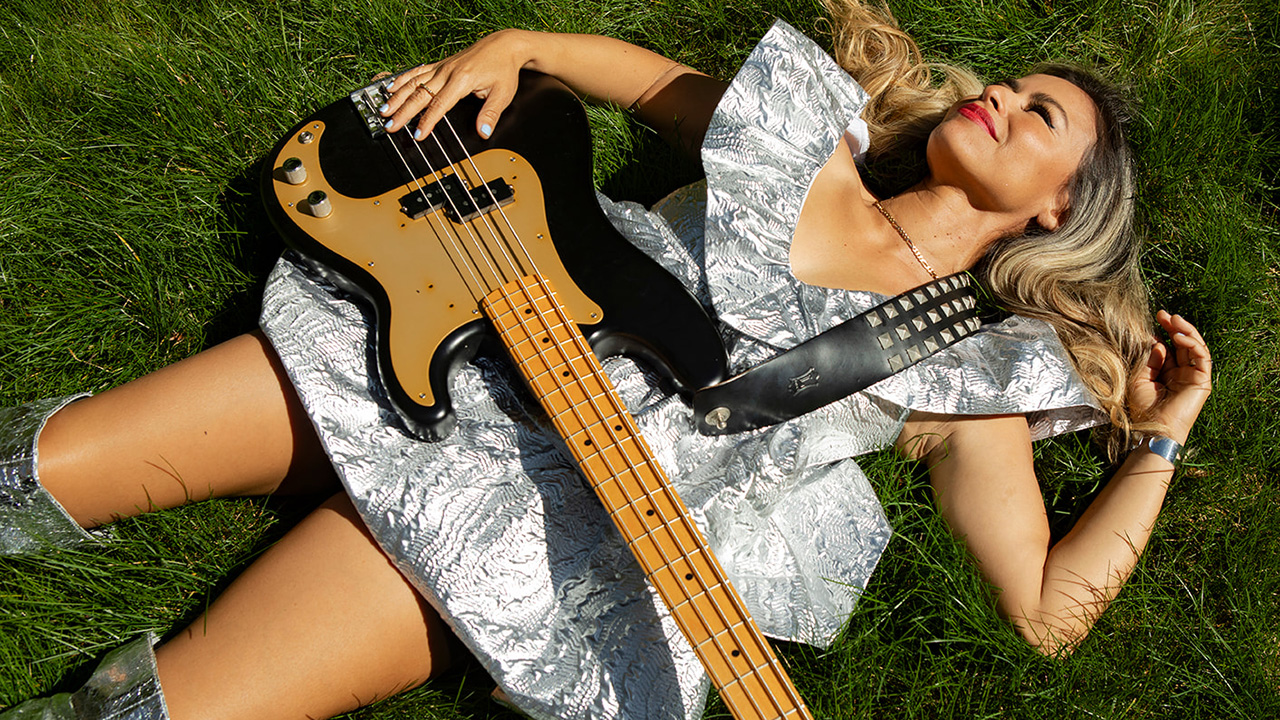
Ginger Pooley went from playing bass at local parties as a SoCal teenager to holding down the low-end in a Christian ska group then pulling double duty on the Vans Warped tour, to playing bass in the Smashing Pumpkins alongside Billy Corgan.
That’s a trajectory that few players can claim, but Pooley – formerly known as Ginger Reyes and Ginger Sling – possesses a multi-genre versatility and an unmatched work ethic. She earned both by hauling her gear around in beat-up Honda Civics and Isuzu Rodeos by herself, which helped when it came to learn dozens of Corgan’s new and old songs.
Pooley’s fierce chops scored her the Pumpkins gig. What’s also fierce is her moral compass and pragmatic, free-thinking personality, which led her to step away from the Pumpkins in 2010 in the name of family – a decision few would have made.
“It was definitely a mental workout,” she says. “But that’s a good thing. It was not an easy gig; I would never say it was. I’m proud of having been able to do that. Next to raising my daughter and giving birth, that gig is up there.”
She went on to gig with Glee and Gwen Stefani, and release music with husband Kristopher Pooley as Burning Pools. But for the most part she’s been removed from the scene; something that’s about to change. “I can’t go into too much detail,” she says. “But this summer, I’m playing bass with Garbage for their European tour.
“My daughter is going into high school in the fall. I feel like, in a way, I’ve graduated from a certain phase of life. The Garbage thing came up recently, and I’ll just share that I’m very excited. I’m working on learning the songs.
“The work ethic gifted to me by the Pumpkins helps me get prepared. I can hear it in my ear, like, ‘Okay, time to get to work.’ It’s about getting mentally prepared – all that stuff that doesn’t come easy to me.
All the latest guitar news, interviews, lessons, reviews, deals and more, direct to your inbox!
“I’m just starting out; I’m in a deep dive and listening. For gear, I’m not totally sure yet. We’re still working on all that. I’ll probably bring my Fender P-Bass, and there’s some drop D involved. We’re still in talks.”
Pooley’s rock ’n’ roll ride means her advice for those just starting out is worth hearing. “Be kind to yourself," she says. “Don’t judge yourself too harshly. Just be gentle.
“Try your best – and if things don’t work out, it means there’s something else better out there for you. It’s okay if something doesn’t work out. I didn’t learn that until way into being an adult. So I would wish that for everybody.”
My dad got me a cheap bass they called a Bender – a Fender rip-off called a Bender, and it was awesome!
What first drew you toward the bass guitar?
“When I was in high school, I made a friend who was playing bass in a metal band. It was the ’90s, so there were a lot of parties in random places, like in a field near your house, and somehow they’d get a bunch of cables over and get power.
“My friend was there and I saw him play, and thought, ‘Oh, my gosh, I like that. Whatever that is, I like that.’ It just resonated with me. I didn’t seek it out; it just showed up, and I kind of dove into that.”
Once you dug in, what types of players resonated with you?
“All the players in high school were into metal or Rush. So it was all about who could do the coolest riff. Geddy Lee was a hero at the time; then, as I started listening to more and more music, I got into The Beatles. It became about Paul McCartney and his playing. It’s so melodic, and the parts are just so cool.”
Can you remember your first bass?
“I was 14 or 15 when I told my dad I wanted to play. It was around Christmas time, and I didn’t expect it, but I got a bass for Christmas. He went to the music store and got a cheap bass they had called a Bender – it was like a Fender rip-off called a Bender, and it was awesome!”
Do you still have it?
“I ended up exchanging it for a Washburn!”
That’ll be one of those things that years from now will be worth a ton of money on Reverb!
“I know! I should look that up; I don’t even know if it exists anywhere. But I exchanged the Bender for a Washburn, and I honestly don’t remember what I was playing after that.
“In high school, it was just me practicing in my room for the most part; but towards the end I started playing a few of those parties I talked about. I don’t remember but it was probably just whatever gear was already set up.
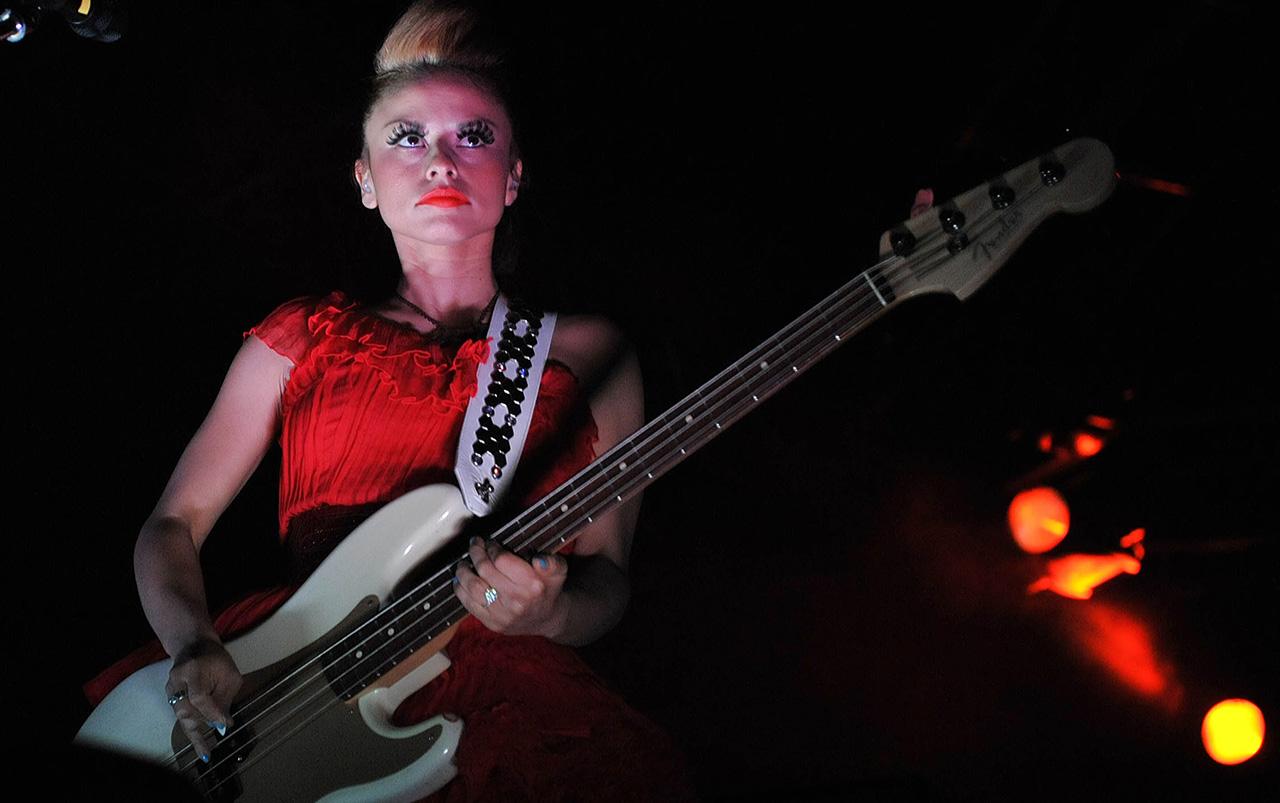
“I remember I had a little Gallien-Krueger head and some other little things. But pretty soon after that, I started touring and got an Ampeg SVT, which I was hauling around in my Honda Civic hatchback – and it did fit back there!”
What was life like once you started gigging?
“It was pretty lowkey, but I played a lot; a lot of DIY, where you’re just trying to book shows. It was a lot of indie bands, playing all-ages shows, or putting shows on at a coffee place or a parking lot. There was a lot more opportunity for people to put shows on themselves. A group of people would say, ’Sweet, let’s have a show.’ And there was definitely no money involved as far as getting paid!”
In high school you can be guarded and very vulnerable; I had Pumpkins quotes written on my backpack, like a lyric from a song, ’I just wanna be me.’
How did you end up joining your first band, The Israelites?
“I was about to graduate and a friend saw me play at one of those parties. He was like, ‘Oh, you need to be in a real band. These people at my church have a band, and they’re called The Israelites…’
“They played a lot of traditional ska concerts, and ska was pretty big at the time – No Doubt was blowing up, so a lot of bands took after ska and roots reggae kind of stuff. I had no idea about that scene because I was more into punk rock.
“But I got introduced to this band and I dove into this new world of music I’d never heard before. It was pretty legit. We played a lot of those shows I was talking about; we had shows every weekend, and we’d rehearse twice a week.”
And you were going to UCLA at the same time.
“I started college, but I was busy every weekend. We’d have a show, and I was driving all my gear on my own and using like a printed-out map! The band played at this place in Arizona, a church or some event; and basically, the band was a little too preachy for me. The music itself was very traditional, a lot of that old ’60s ska music, which already had religious undertones.
“And that was cool, but I felt like that was good enough for me as far as needing to share your faith in music. So, I’m rolling my eyes and stuff, like, ’Come on, let’s just play. This is excruciating.’
“So the powers that be in that band were like, ‘This is not working.’ I got canned in Phoenix, Arizona, and had to ride home to California with the singer for like six hours. That was a long ride after getting canned!
“Most bands don’t last forever anyway – and when you’re 21, you think, ‘Okay, I’ve got a whole future ahead of me.’ And literally as soon as I got home, the Halo Friendlies called me, saying they needed a bass player.”
Going from a Christian ska band to a punk band like Halo Friendlies showed a lot of versatility.
“I don’t know… I already loved punk rock; it was more my thing anyway. The Halo Friendlies made more sense for me as a person. It just resonated with my personality; it was a good transition.
“They were all female, which was cool. It was more collaborative and it was just a really fun environment. Again, it was a lot of DIY; we all hopped into this old Isuzu Rodeo with a trailer – like, a wooden trailer from the ’60s, where you had to lift the door off – it was just so old! It was unloading gear, driving ourselves and staying up all night to drive while the others slept in the back.”
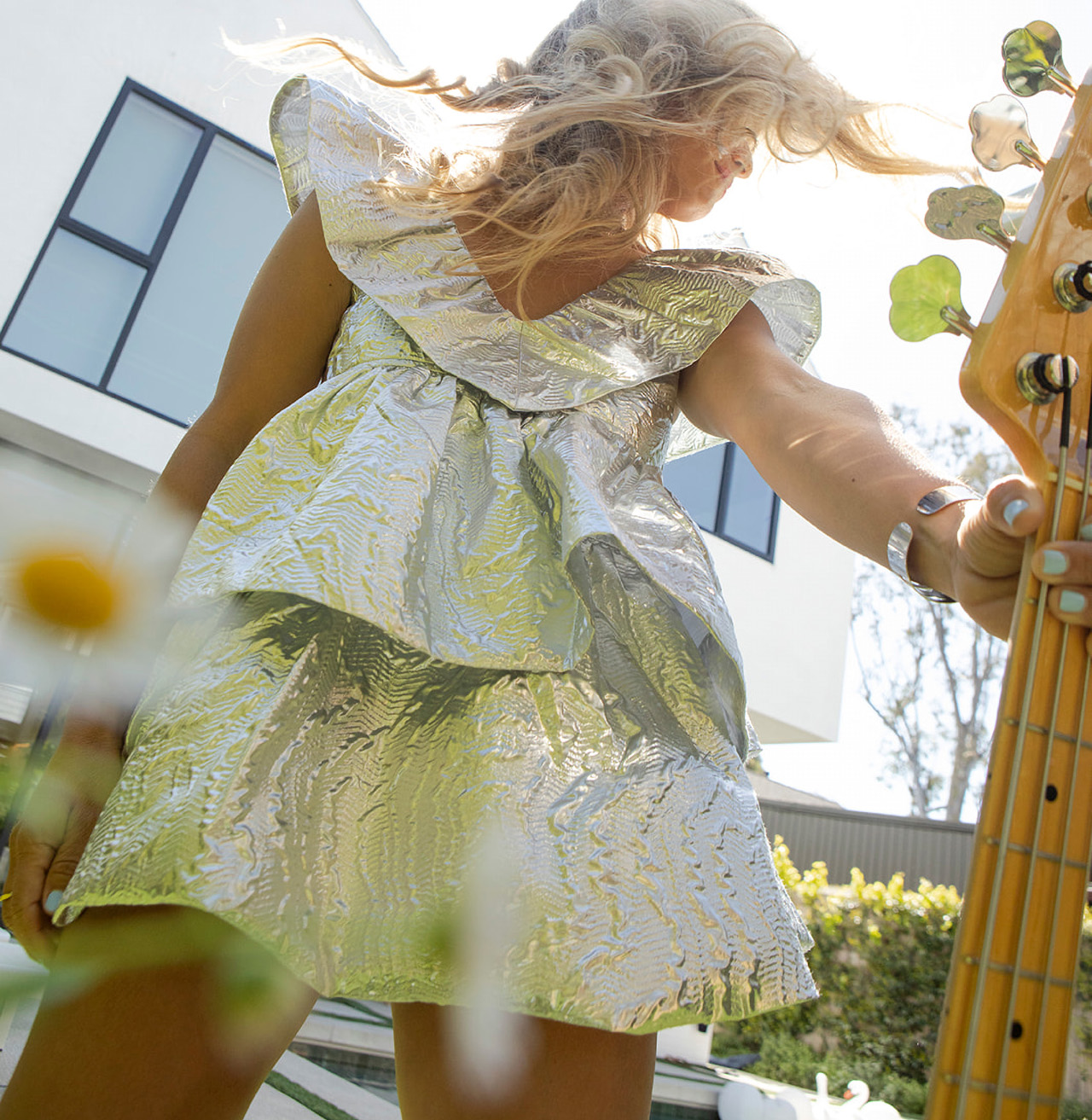
You went from the Halo Friendlies, to a stint with Lo-Ball, recording as Ginger Sling, to joining the Pumpkins.
“I discovered the Pumpkins in high school – it wasn’t hard because they were everywhere. They just resonated with me. In high school you can be guarded and very vulnerable; I had Pumpkins quotes written on my backpack, like a lyric from a song, ’I just wanna be me.’ It could be embarrassing, but it’s also what I thought, which meant a lot to me.”
When playing with a pick and paying attention to what the kick pattern is doing, I sync up. I feel like that was a very percussive way of playing
How did you get the Pumpkins gig?
“I was doing the solo thing, playing here and there with artists who needed a bass player. And I had a friend who was a writer for magazines; she interviewed Billy and they became friends.
“After a while, he told her, ‘We’re looking to record; we’re gonna get the band back together, and I’m looking for a bass player. If you know anybody, let me know.’ So she called me and said, ‘You won’t believe this, and it’s probably not gonna happen, but I gave Billy your number. He might call you; he might not.’”
“I was like, ‘That’s amazingly awesome; that would be great!’ She definitely had low expectations that I Billy would even reach out. And he did; and then we met up, started chatting, and became friends who would meet up every once in a while. And then, he’s like, ‘We’re gonna start some auditions. I’ll connect you with our management.’”
And what was the audition like?
“I was scheduled to come in and learn a couple of songs, and the person who would be there was [drummer] Jimmy Chamberlin. I was like, ‘Oh, my God, I’m gonna have a heart attack. I get to play with Jimmy Chamberlin; this is going to be the highlight of my life!’
“I was pumped even to just be in the same room, to play two songs and say, ‘Okay, I did it.’ So I played a couple songs with him and he’s like, ’Great.’ Then he emailed or texted me, ‘Can you come back in two days and learn two more songs?’
“I went back, and that was the pattern; I’d come back, play, learn more songs, go home, make sure I learned the songs well, and that got stretched out.”
When did you learn you’d finally gotten the gig?
“I knew there was another bassist auditioning at the time. Then I stopped hearing about her, and it seemed like it was just me coming in. It just kind of dragged on; it was pretty vague. I think about that time [guitarist] Jeff Schroeder started coming in too.
“It was kind of like we were rehearsing – like, to work out, ’Is this a good group? Does this gel? Does it make sense? Does it sound good?’ It was like dating.
“Jimmy must have been reporting back. And then, maybe a few months later, he’s like, ‘Okay, Billy’s gonna come in. We’re gonna do a couple of songs all together.’ He did, and he seemed pretty happy. And I’m not sure if Jimmy or Billy told me – I can’t remember – but someone had said, ’Oh, I really like how hard she plays.’
“I’d really dig in when we did the heavy stuff. I’m not a light player, and I think my playing has some power to it because of my background in punk rock. It’s also very rhythmic – but no-one has said that; I’m not speaking for Billy now.
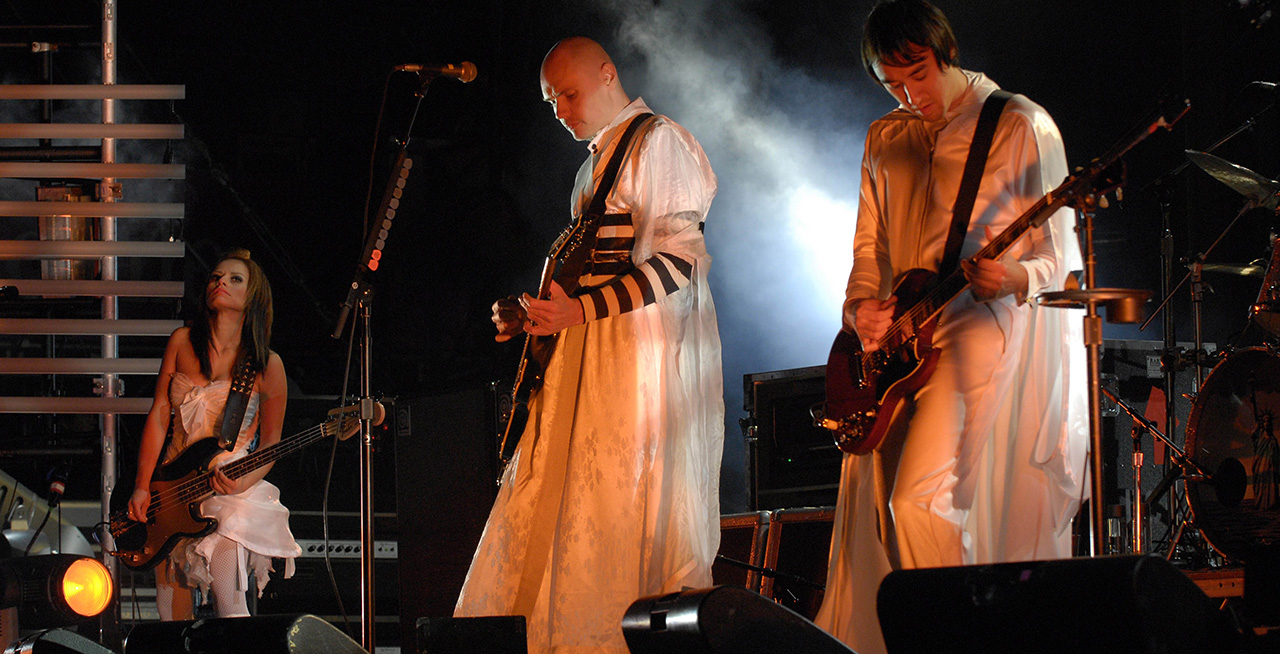
“For me, especially when playing with a pick and paying attention to what the kick pattern is doing, I sync up. I feel like that was a very percussive way of playing. I’m not saying I’m better than anybody, or that’s unique at all. And maybe I played a little bit harder than previous players.
“That’s my guess. And maybe Jimmy thought that we gelled or had a sound that wasn’t the same. Or maybe it’s because I’m a pretty mellow person. I can’t say why, exactly; those are just my thoughts off the top of my head.”
Whenever we would go into soundcheck, Billy would come in and say, ‘I’ve got this new song’ … there were already like 250 plus songs!
It sounds like the chemistry was pretty evident.
“It was definitely surreal. We rehearsed in Chicago for about a month straight of full-on days. It was exhausting. It was like training for boot camp! So by the time we played our first show, we were so locked in. Everything revolved around the show –eating, sleeping, everything.”
Were there any nerves?
“I definitely wasn’t nervous when the first show came; it was exciting. I remember the tour manager coming backstage one day and just confirming the spellings of our names for Rolling Stone or something like that, because they were gonna officially announce who was in the band. I remember being like, ’Okay, it’s official – it’s happening.’”
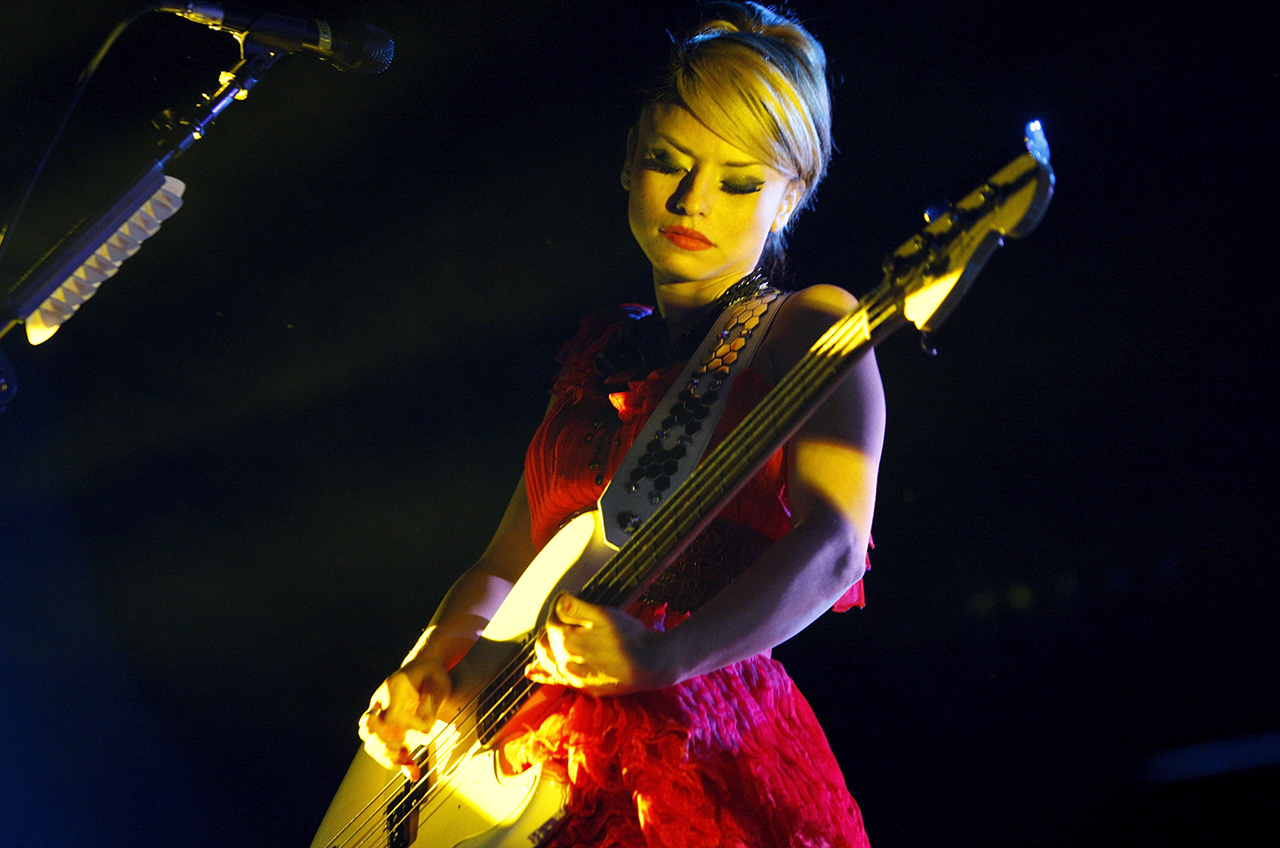
What sort of bass rig did you bring to the party?
“When we got into rehearsals, there were already some Ampeg SVTs there. I believe it was one of the Heritage models, which are beautiful. I think there were eight of them, and we definitely had them on each side of the stage, which also looked really badass!
“Walking into rehearsal, I had all the gear already there. There were no pedalboards or anything, though I eventually got some pedals over time.”
Learning those songs must have been a challenge – they’re pretty complex.
“There were definitely some hard songs to play. I can’t think off the top of my head, but there was nothing that was like four bars of this and four bars of that. The timing and forms of everything were so crazy, and they were really hard to learn and remember.
“That’s a credit to Billy. He’s just so creative and out of the box; he can’t not be that way. It would never occur to him to do something simple. You might think, ‘That sounds simple,’ but a lot is going on. So, most of the songs were difficult to learn, but also really fun to play.”
Did Billy give you pointers, or were you able to put your spin on the songs?
“There’s a lot of layers, and I played those like they were played. But there was a lot of jamming going on too, and there I was pretty much given free rein.
I honestly believe that Billy would have been cool with having the family out on tour, which I thought I’d do
“But whenever we would go into soundcheck, Billy would come in and say, ‘I’ve got this new song,’ and I was like, ‘Oh God, another new song to learn,’ because there were already like 250-plus songs! But he’s just so prolific.”
And then you did something that most musicians wouldn’t dream of: walking away from one of the largest gigs in the world.
“It’s really kind of you to put it that way. At the time it was a no-brainer – there was not even a second thought because I had a whole series of things happen. I was pregnant; I was planning on coming back and I’d been messaging Billy about starting rehearsals.
“But as soon as I had my daughter, my mom passed away. That was really difficult, and my daughter’s birth had been very difficult; and having a newborn was very difficult. When I realized how much work it is to have a baby, I was like, ‘I can’t even fit in my brain those 250 songs – plus the new ones every day.’ And I wanted to be the kind of mom that was present physically.”
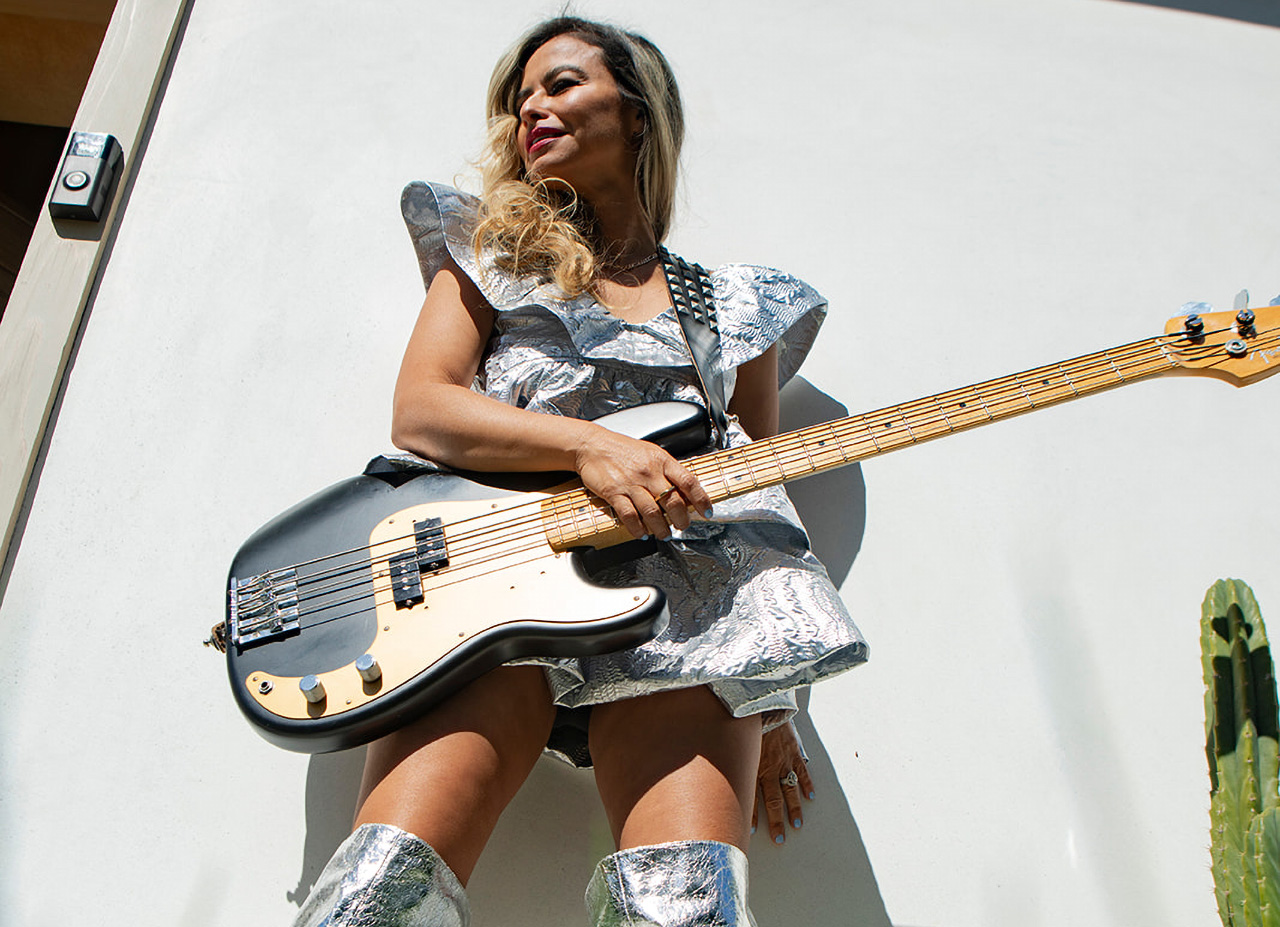
I won’t use the word ‘regret’ because I’m sure you don’t; but do you ever wish you’d found a way to balance the two?
“I honestly believe that Billy would have been cool with having the family out on tour, which I thought I’d do. And that was gonna be fine, but it’s so taxing having to raise a newborn. It’s just so taxing on your body with nursing, and I just knew right away, ‘This is not gonna work because this gig is so demanding.’
The standard was so high, and the work ethic was so high; I don’t know if people even understood how high the standard was
“I later took my baby on the road with the Glee tour, but that was not as demanding because we were playing two-minute pop songs. But with the Pumpkins I just knew ‘There is no way I can give 110 percent to this band and 110 percent to my family.’
“With the Glee thing, I reached out to Billy, saying, ‘Hey, is this okay?’ and he’s like, ‘Yeah, that’s fine.’ And the person who was managing the Glee tour also managed the Pumpkins, so it was a small world.
Your era of the Pumpkins has gained a cult following over the years. Was it tough to see them move on without you?
“When the Glee tour was in rehearsals, the Pumpkins were rehearsing right next door – in the very next room. My baby was there, and I’m pumping milk in the bathroom; I could hear the rumble of the bass and drums of the Pumpkins through the bathroom walls.
“Nicole Fiorentino was starting to rehearse with them. That was surreal for me: ‘Okay, that was my gig, now that’s not my gig.’ I wouldn’t say there was like, regret – but it was kind of like when you’re seeing your ex get engaged or married! It’s like, ‘Okay, but I got married too, so it’s fine!’”
Making that decision had to have impacted you as a person, probably forever.
“Oh, God, it just completely transformed me. What was required... the standard was so high, and the work ethic was so high; I don’t know if people even understood how high the standard was.
You were playing with Jimmy Chamberlin and Billy Corgan, two of the best players in that genre, or even rock itself. You’re trying to keep up
“I can’t say what things are like now, but back then the band was coming back from hiatus, doing a new record, and having this big push, so the standard and work ethic were really strong. It was all about doing the best you absolutely could and being focused. There was no downtime to mess around.
“I don’t want to say perfection was required, but there was just so much work involved. You were playing with Jimmy Chamberlin and Billy Corgan, two of the best players in that genre, or even rock itself. You’re trying to keep up.
“My work ethic definitely grew; I’m a totally different person than before the band as far as knowing what it takes to work and play in a band. When you’re doing something on a big scale, it has to be as perfect as it can be. I don’t know if I would have understood that if I hadn’t been in the Pumpkins.”
- The Garbage tour commences on June 26.
Andrew Daly is an iced-coffee-addicted, oddball Telecaster-playing, alfredo pasta-loving journalist from Long Island, NY, who, in addition to being a contributing writer for Guitar World, scribes for Bass Player, Guitar Player, Guitarist, and MusicRadar. Andrew has interviewed favorites like Ace Frehley, Johnny Marr, Vito Bratta, Bruce Kulick, Joe Perry, Brad Whitford, Tom Morello, Rich Robinson, and Paul Stanley, while his all-time favorite (rhythm player), Keith Richards, continues to elude him.




